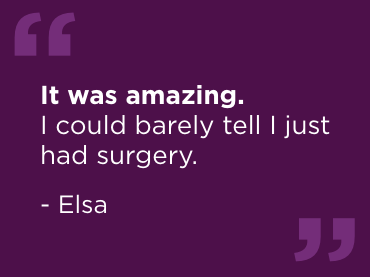Educational Programs and Classes
Endoscopic Endonasal Surgery of the Cranial Base and Pituitary Fossa Course
As leaders in the field of minimally invasive brain surgery, UPMC's surgical team shares their knowledge and expertise with surgeons from around the world in a four-day, hands-on course, presented several times a year.
Each year, this course draws more than 100 neurosurgeons, otolaryngologists, head and neck surgeons, and skull base surgeons who want to learn about the most recent developments in the Endoscopic Endonasal Approach (EEA) to the skull base and pituitary fossa.
Since the course's inception, more than 750 surgeons have participated to gain a better understanding of the anatomical and technical aspects of this procedure along with risks, benefits and outcomes.
The course features live interactive surgery, didactic lectures, 3D anatomical presentations, and hands-on fresh cadaver dissection (including skills stations, anatomical models, and state-of-the-art endoscopic equipment with image guidance).
Innovations in Endoscopic Intracranial Surgery: A Hands-On Course
This course is designed for practicing neurosurgeons, residents, and fellows who are interested in learning, updating, or advancing their ability to access all areas of the intracranial space using endoscopic and minimally invasive approaches. A comprehensive overview of the basic concepts of cranial endoscopy, as well as multiple endoscopic and minimally invasive corridors of approach to all areas of the brain and skull base, will be presented by combining 3D anatomical and didactic lectures with hands-on anatomical dissection and live interactive surgical case demonstrations of:
- Endoscopic endonasal surgery
- Keyhole approaches (retromastoid and eyebrow)
- Working channel endoscopy
- Neuroendoport® surgery
Visiting Clinical Observers Program
The Visiting Clinical Observers Program provides an opportunity for national and international physicians to observe (that is, no hands-on or direct patient care is permitted) current treatment modalities in the operating theatre, including, but not limited to, standard and endoscopic endonasal skull base procedures, for any length of time up to three months. Visiting scholars are also invited and encouraged to attend our weekly teaching conferences and monthly pituitary conference.
Unfortunately, neither our department nor the University of Pittsburgh have funds available to support travel or housing expenses or to pay a stipend; therefore, all financial support will be the responsibility of the visiting clinical observer's home institution and/or their own personal resources.
For more information about this program or to apply, please contact Mary Jo Tutchko.
Training and Teaching Programs
Skull Base Surgery Clinical Fellowship Training Program
As a teaching institution, UPMC provides fellowship training for the next generation of minimally invasive skull base surgeons.
The Skull Base Surgery Clinical Fellowship Training Program in the Department of Neurological Surgery at UPMC is a one-year program. Approximately 30-50 cases are performed per month; about half of these are endoscopic endonasal surgeries and the remainder are various open skull base and vascular procedures as well as some general cranial surgery. Fellows have the opportunity to and should participate in all types of cases, but are primarily focused on endoscopic endonasal work. In addition, fellows have an active role in the weekly outpatient clinic and are responsible for organizing and presenting weekly multidisciplinary Skull Base Planning Conferences where interesting and new cases are presented. The fellows are also expected to play active roles in the Surgical Neuroanatomy Lab. This activity is focused in the first six months on developing the anatomical basis for skull base surgery, but is continued throughout the fellowship.
For more information about this program or to apply, please contact Mary Jo Tutchko.
Research Programs
The Surgical Neuroanatomy Lab (SNL) has a dual educational and research role that aims to improve surgical techniques and outcomes by mastering knowledge of relevant surgical neuroanatomy. The working philosophy at the SNL is that of meticulous and exquisite anatomical micro-dissections to better understand the intricacies of the complex anatomy of the human brain and skull base. The lab has three main research/educational areas: endoscopic skull base anatomy, microsurgical neuroanatomy, and white matter anatomy/brain connectivity/surgical planning.
For complete information about our current research activities, please visit the Surgical Neuroanatomy Lab website.
Visiting Research Fellowship Program
The Visiting Research Fellowship Program provides an opportunity for both national and international physicians to participate in research projects underway in the Surgical Neuroanatomy Lab.
In addition, if time permits, visiting research fellows are permitted to observe (that is, no direct or hands-on patient care is permitted) current treatment modalities in the operating theater, including but not limited to standard and endoscopic endonasal skull base procedures. Visiting research fellows are also invited and encouraged to attend our weekly teaching conferences and research fellows meeting.
The Department of Neurological Surgery provides visiting research fellows with the lab material, technical equipment, and personnel support needed to successfully complete their research project(s). Unfortunately, neither our department nor the University of Pittsburgh have funds available to support their travel or housing expenses or to pay a stipend; therefore, all financial support will be the responsibility of the visiting research fellow's home institution and/or their own personal resources.
For more information about this program or to apply, please contact Mary Jo Tutchko.


















